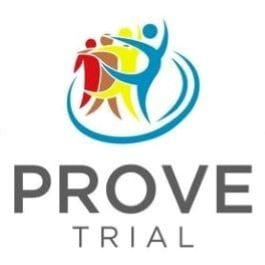The CATALYST Lab develops, delivers, and evaluates technology-assisted healthy lifestyle interventions with an emphasis on promoting healthy lifestyle behavior changes to moderate obesity, malnutrition, smoking cessation, and more at both the provider and community levels. The CATALYST Lab is wholly funded by the NIH and is a direct affiliate of Northwestern University Feinberg School of Medicine’s Department of Preventive Medicine with multiple internal and external collaborations and supports activities with NUCATS and Lurie Cancer Center. The CATALYST Lab team has streamlined its current clinical trials to be delivered entirely remotely during the COVID-19 pandemic, expanding its reach across the United States.
Active Research Studies

SMARTer Study
The SMARTer trial will address whether a scalable, stepped-care intervention can stand up to gold-standard DPP by achieving comparable weight loss at a lower cost. The SMARTer intervention reduces costs by initially offering minimal intervention to all and stepping up to offer more costly treatment components only to non-responders who fail to attain the target weight loss.

STELLAR Program
STELLAR’s goal is to improve cancer patient’s health, survival, and quality of life by promoting healthy lifestyle behaviors for Northwestern Medicine patients who are cancer survivors. The main questions STELLAR aims to answer are: 1) How best to combine three behavior interventions (physical activity promotion, smoking cessation, obesity treatment); 2) Evaluate the reach of the program; and 3) Evaluate the effects on cancer risk behaviors, patient care access, care quality, and communication.

EVO Study
EVO is a 12-month healthy lifestyle and weight loss research study. Researchers are looking to determine the best strategy for weight loss and healthy living. Participants enroll in the 12-month study and receive a free 6-month health program.

BEAM
Using data from 6 previous studies, BEAM aims to identify behavior patterns that precede and predict maintenance of meaningful behavioral improvement that persists after an intervention ends.

Sense2Stop
The Sense2Stop Study evaluated the feasibility of a just-in-time intervention to delay or prevent smoking relapse in smokers attempting to quit. This study was made possible through our partnership with the MD2K Center of Excellence for Mobile Sensor Data-to-Knowledge, centered at the University of Memphis. MD2K seeks to advance biomedical discovery and improve health through mobile sensor Big Data.

MBC2 in Rural Appalachia
Our team has partnered with the University of Kentucky to assess the effectiveness of the adapted Making Better Choices (MBC2) program for a rural, Appalachian population. Participants will be randomized to receive either the adapted MBC2 or a stress management program.

Technology-Supported Treatment of Sleep Apnea in Prediabetes
Our team has partnered with the University of Chicago for a study of patients with sleep apnea and prediabetes. Participants will engage in a six-month randomized controlled clinical trial that combines continuous positive airway pressure (CPAP) treatment of sleep apnea with lifestyle interventions using mobile technology.

PROVE
The PROVE Trial is a randomized clinical trial that will determine whether a weight loss intervention combined with walking exercise achieves greater improvement or less decline in six-minute walk distance at 12 month follow-up than walking exercise alone in people with PAD and BMI>28 kg/m2.
Research Areas and Projects

Team Science Program
The Team Science Program offers the expertise and resources to help investigators and teams learn the fundamentals of team science and to support teams as they develop and mature.

Evidence-Based Behavioral Practice
We create training resources to help bridge the gap between behavioral health research and practice. Professionals from the major health disciplines are collaborating to learn, teach, and implement evidence-based behavioral practice (EBBP).